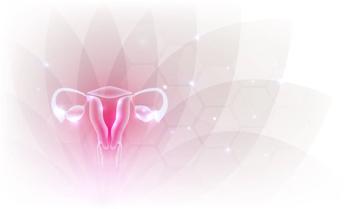
Study finds early HPV vaccination boosts completion rates
Early HPV vaccination at age 9 boosts completion rates, reduces disparities, and enhances cancer prevention effort, according to a recent study from Nemours Children's Health.
A new study from Nemours Children’s Health reveals a promising approach to increasing human papillomavirus (HPV) vaccination rates by beginning vaccinations at age 9, rather than the current standard of age 11. The study, published in Academic Pediatrics, demonstrates significant improvements in vaccination completion rates and a narrowing of racial and ethnic disparities. 1
The initiative, implemented across 20 Nemours primary care sites between 2019 and 2022, introduced updates to electronic health records (EHR), targeted provider education, and routine feedback on vaccination performance. These measures encouraged clinicians to recommend the HPV vaccine at well visits for children as young as 9 years.1
Results
The study measured progress using the Healthcare Effectiveness Data Information Set (HEDIS) rate, which tracks the percentage of patients completing the 2-dose HPV vaccine series by age 13. Key outcomes included:
- HEDIS rate: Increased from 49.2% in 2019 to 59.5% in 2022, with a subsequent rise to 63.9% by 2023, after the study period concluded.2
- Early initiation: Vaccination initiation at ages 9 and 10 surged from 13.2% in 2019 to 42.2% in 2022.2
- Demographic gains: Early vaccination initiation improved across all racial and ethnic groups. Hispanic patients saw an increase from 27.6% to 51.5%; Black patients from 19.0% to 45.7%; Asian patients from 4.8% to 44.8%; and white patients from 6.1% to 36.5%.2
Addressing barriers and stigma
Researchers attributed part of the success to reduced stigma around discussing the vaccine when it is framed as cancer prevention rather than a measure against sexually transmitted infections. Providers also noted that parents were more receptive to earlier vaccination recommendations.1
“Initiating HPV vaccination at age 9 allows us to make leaps in this important public health measure,” said Jonathan Miller, MD, associate chief of Primary Care at Nemours Children’s Health. “We were thrilled to discover that this project led to significant improvements in racial disparities in vaccination rates, even though we did not design the intervention specifically to do that.”1
Expanding evidence for early vaccination
HPV is a common virus, with 85% of people expected to be infected in their lifetime. While vaccination can prevent 90% of cervical cancers and significant proportions of other HPV-related cancers, the United States adolescent vaccination completion rate remains at just 62.6%, far below other routine immunizations. Starting vaccinations at age 9 provides more time to complete the series, which may benefit families facing access barriers.1
"Our study showed that initiating vaccination at age 9 leads to more adolescents being fully protected against cervical cancer and several other cancer types, which adds to a growing body of evidence and broader national push to begin the series at that age," concluded Caitlin Miller, a medical student and lead author.1
References:
1. Nemours Children’s Health Initiative to Start HPV Vaccination at Age 9 Improved Completion Rates. Nemours Children's Health. December 11, 2024. Accessed December 13, 2024. https://nemours.mediaroom.com/MillerHPV
2. Miller CJ, Boopathi A, Slovin SR, Gao Z, Maiden K, Ray M, Miller JM. Quality Initiative to Increase Early Initiation and Series Completion of HPV Vaccine and its Impact on Health Disparities. Acad Pediatr. 2024 Nov 17:102609. doi: 10.1016/j.acap.2024.102609. Epub ahead of print. PMID: 39561944.
Newsletter
Get the latest clinical updates, case studies, and expert commentary in obstetric and gynecologic care. Sign up now to stay informed.








